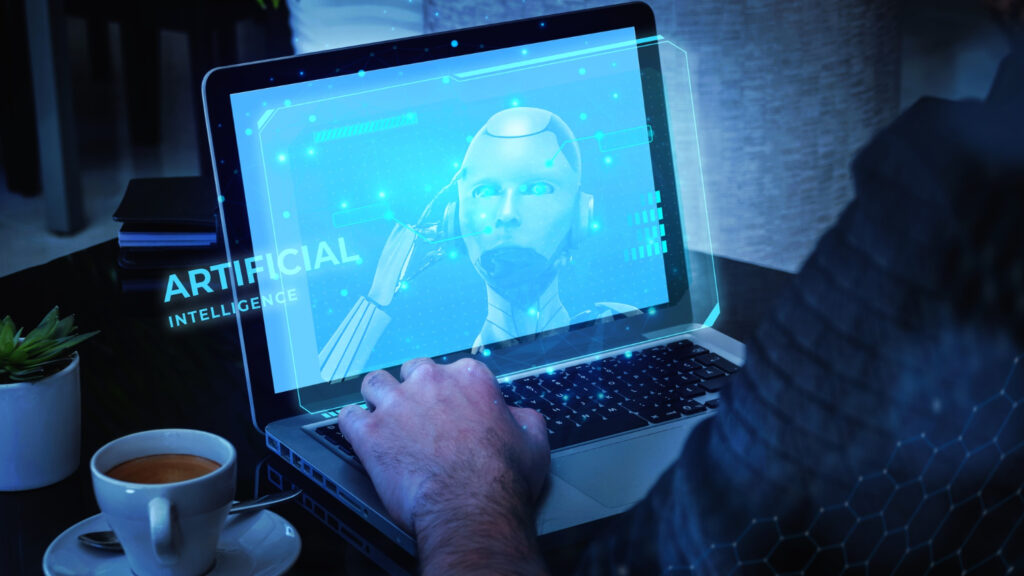M+E Daily

Wasabi: AI to Continue Changing the Cloud Storage Market in 2024
Story Highlights
Artificial intelligence (AI) will continue to change the cloud storage market in 2024 as more companies adopt the technology, Wasabi cloud experts predicted Jan. 19, during the webinar “Wasabi’s Hot 2024 Predictions for the Cloud.”
The macroeconomic uncertainty that started in 2022 and crept into 2023 impacted cloud IT budgets and spending throughout last year, according to Wasabi. As a result, many companies reevaluated their cloud spending with a renewed focus on long-term cost reduction, operational efficiency and simplicity.
Meanwhile, organizations continue to drive infrastructure modernization initiatives that are needed to support digitization and now the rise of AI as well, the company says.
Wasabi predicts that the need to better manage cloud IT costs, while simultaneously expanding usage of the same solutions to drive digital modernization, will be a defining challenge for many enterprises throughout 2024.
“This multi-cloud reality that our market is moving towards has its challenges and I think this kind of brings us into talking about all things artificial intelligence-related,” Andrew Smith, senior manager, Strategy and Market Intelligence at Wasabi, said during the webinar.
“Data security and compliance across those multi-cloud environments is extremely complex, and I think that’s going to be only exacerbated by these new categories of solutions and applications like artificial intelligence, machine learning [and] predictive analytics,” he said.
According to Smith, “probably more than half of organizations are going to have some sort of AI solution adopted, implemented [and] deployed over the next 12 to 24 months.”
 When Wasabi asked respondents to its cloud storage index if they were thinking about deploying an AI-based solution, almost 100 percent said, ‘yes, we’re thinking about it,’” Smith said.
When Wasabi asked respondents to its cloud storage index if they were thinking about deploying an AI-based solution, almost 100 percent said, ‘yes, we’re thinking about it,’” Smith said.
He added: “Everybody’s kind of going [in] this direction. But I think where we would try to influence that prediction is by saying probably more than half of those organizations are not going to be prepared to effectively manage and secure that data that this new category of applications will rely on and that’s going to lead to I think a whole host of new challenges and probably some wasted time [and] wasted funds.”
Meanwhile, “every segment of our industry is going to be using AI to learn and improve the performance of their particular functions,” David Friend, CEO and co-founder of Wasabi, predicted during the webinar.
Friend explained: “In the storage industry, [there] is a huge problem because there’s a big difference between walking into your little local branch library where there might be a few thousand books and say walking into Widener Library at Harvard, where there’s more than 10 million. How do you even start to find something when the amount of data gets to be that big? And now, with people trying to consolidate data from many different sources into the cloud, the problem is not just going to be storing it but finding what you’re looking for once you’ve done it. And there are a lot of different companies that are sort of thinking about and addressing that problem.”
Friend pointed to the Boston Red Sox baseball team, saying the Major League Baseball team is “looking to try to move [its] data to the cloud so that they can reuse it, resell it, provide, new apps for fans that want to go back and see that play from some game 10 years ago.”
Currently, he pointed out, “it’s not so hard to take all those tapes and transfer them up to the cloud.”
However, the “problem is, once you’ve done that, how are you going to find that triple that somebody hit back in 1979? And so this is where I think AI is going to have a big impact on the storage industry,” he predicted. “It’s going to be able to learn how to go through all that information and make it usable by the customer. And one of the great things about the current innovations of AI that’s out there is its ability to look at the data and learn without having to have a human intervene.”









